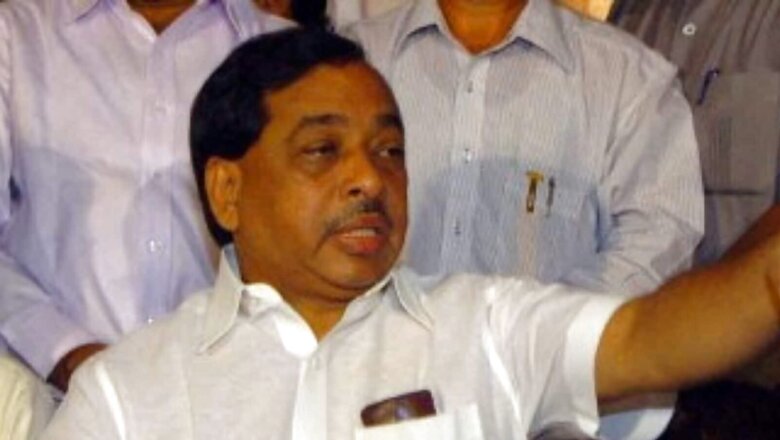
views
Union Minister Narayan Rane, arrested for his controversial remark against Maharashtra Chief Minister Uddhav Thackeray, was granted bail o Tuesday night by a court at Mahad in Raigad district. The BJP leader faces four FIRs across Maharashtra over his remark that he would have slapped Thackeray over the latter’s “ignorance” of the year of India’s independence. Rane was produced before Judicial Magistrate Shaikhbabaso S Patil at 9.45 pm following his arrest in the afternoon. Government pleader Bhushan Salvi sought seven-day police custody for the BJP leader to conduct further investigation. It was important to investigate if there was a conspiracy to tarnish the reputation of the chief minister, he said.
Opposing the application, Rane’s lawyers Aniket Nikam and Bhau Salunkhe argued that his health condition was serious as he was 69 years old and suffered from sugar and blood pressure issues. Nikam further argued that the offenses under IPC for which Rane was arrested were all punishable with less than seven years and hence his custody was unnecessary. Nikam also argued that Rane’s arrest was illegal as no summons was issued to him under Section 41A of the Code of Criminal Procedure before his arrest. Court, after hearing both the sides, denied the police the Union minister’s custody. It instead remanded him in judicial custody and then, on the plea moved by his lawyers, granted Rane bail on a surety of Rs 15,000.
As Rane gets a temporary breather, News18 explains if a Union Minister can be arrested and the procedure for the same:
procedure to arrest a cabinet minister in India
If Parliament is not in session, a cabinet minister can be arrested by a law enforcement agency in case of a criminal case registered against him. As per Section 22 A of the Rules of Procedures and Conduct of Business of the Rajya Sabha, the Police, Judge or Magistrate would, however, have to intimate the Chairman of the Rajya Sabha about the reason for the arrest, the place of detention or imprisonment in an appropriate form.
What should the Chairman of the Rajya Sabha do in case of an arrest?
The Chairman should inform the Council if it is sitting about the arrest. If the council is not sitting, he/she is expected to publish it in the bulletin for the information of the members.
But don’t Rajya Sabha members have privileges?
As per the main privileges of Parliament, in civil cases, they have freedom from arrest during the continuance of the House and 40 days before its commencement and 40 days after its conclusion, as per section 135 of the Code of Civil Procedure. The privilege of freedom from arrest does not extend to criminal offences or cases of detention under preventive detention.
The only protection from arrests afforded to a governmental figure through the Constitution is the President of the Republic, who is immune from civil and criminal proceedings until their term is over. In the eyes of the law, every Indian citizen is an ordinary man, at least in theory.
Read all the Latest News, Breaking News and Assembly Elections Live Updates here.


















Comments
0 comment